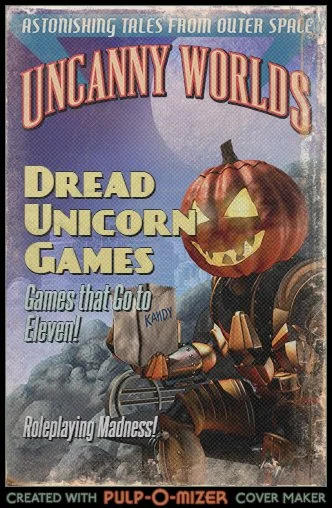Piggybacking Part II
Before we steal Piggybacking from GUMSHOE, check out how it works there in Piggybacking Part I.
The Noisy Cleric Problem
The problem piggybacking solves can be found in all sorts of roleplaying games with all sorts of skills, but the example that comes to mind is sneaking into a castle in a fantasy game like Dungeons and Dragons. In fantasy books and movies, the heroes sneaking into places is a staple of the genre. In D&D games, sneaking is left to the rogue and the ranger for scouting. Once the GM tells the entire table to roll dice to see if they sneak into the castle, somebody always misses, and the exciting infiltration turns into a frontal assault.
GUMSHOE Roots
In games like TimeWatch, Nights Black Agents, or Trail of Cthulhu, the whole spend resources to piggyback fits perfectly, since they are all GUMSHOE games. Most of my players have points to spend in Infiltration, but some have zeros. Every general skill is like that. You aren't giving the party something for free, they are spending resources they might need later to succeed now.
Let's look at other systems. I haven't tested these, but I will.
Cypher System Piggybacking
In games like Numenera, Predation, and The Strange, GUMSHOE style piggybacking is easy, since you're already spending the resources of Might, Speed, and Intellect to do anything.
The expert spends from their pool as normal, but the difficulty is harder because they are pulling the rest of the party with them. For a sneak into the castle test, the expert has their difficulty raised (+2 sounds good, +1 for less than 3 followers) and uses Speed. While the expert can use their Edge to lower their costs, the followers can not. They each spend one point, no discount.
If the expert succeeds, everyone sneaks in. Move on with the adventure.
Nothing to Spend Piggybacking
In games as varied as Call of Cthulhu, 13th Age, and Dungeons and Dragons, you don't have resources to spend to sneak into castles or climb up icy cliffs. You've got hit points, and while spending those might make sense in a few cases, usually not. Same with Sanity, Recoveries, or Spell Slots. These games are not about spending resources on skill tests, so it seems wrong to try and force them do that just for piggybacking.
In these games I'd boost the difficulty for the expert (+5 for d20, +25% for Call of Cthulhu), but then I'd require the rest of the party to roll just to assist. And if someone fumbles, well then, we're right back where we started from. That's the cost right there, the more players rolling, the greater the chance of a fumble. :)





